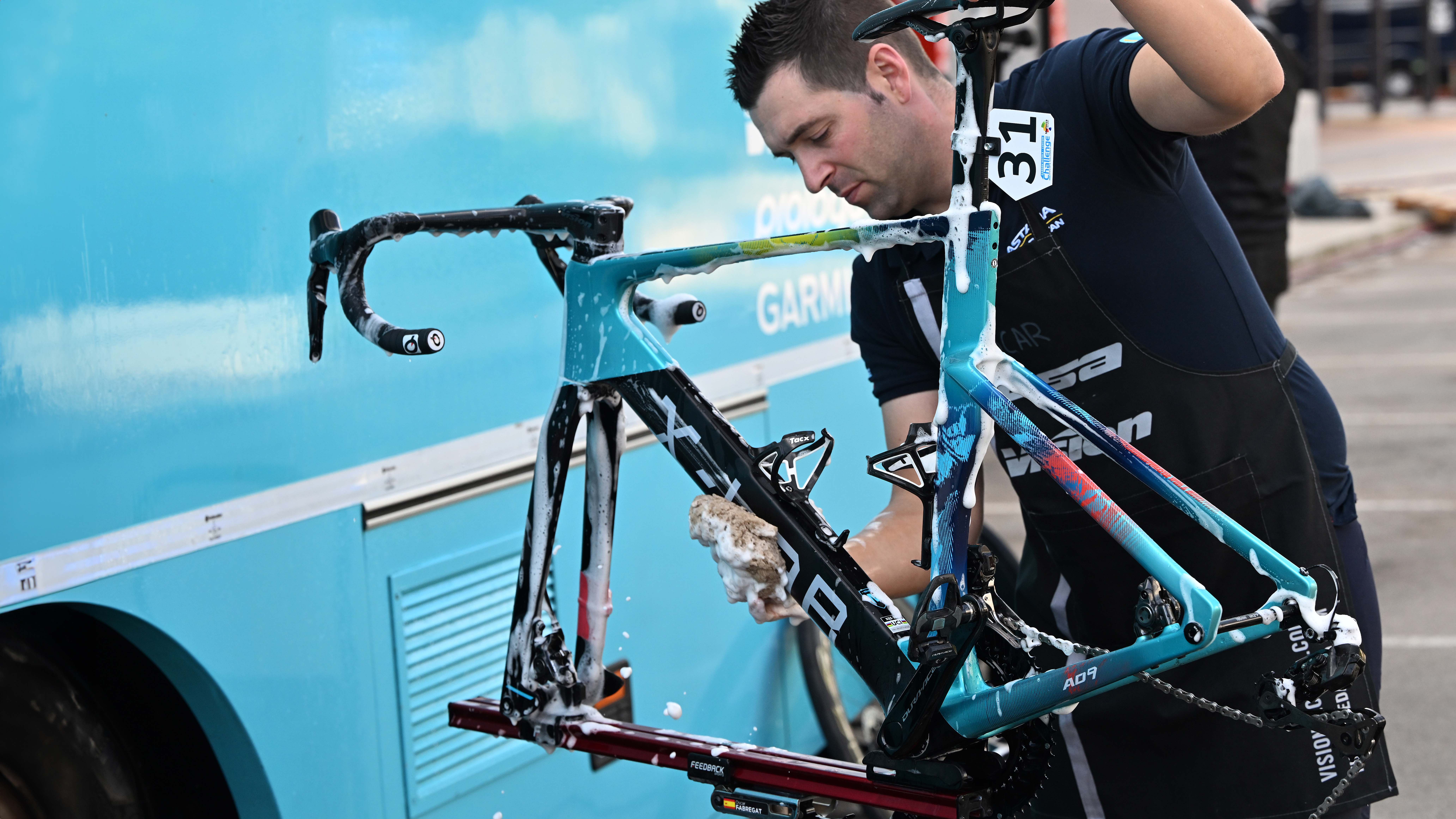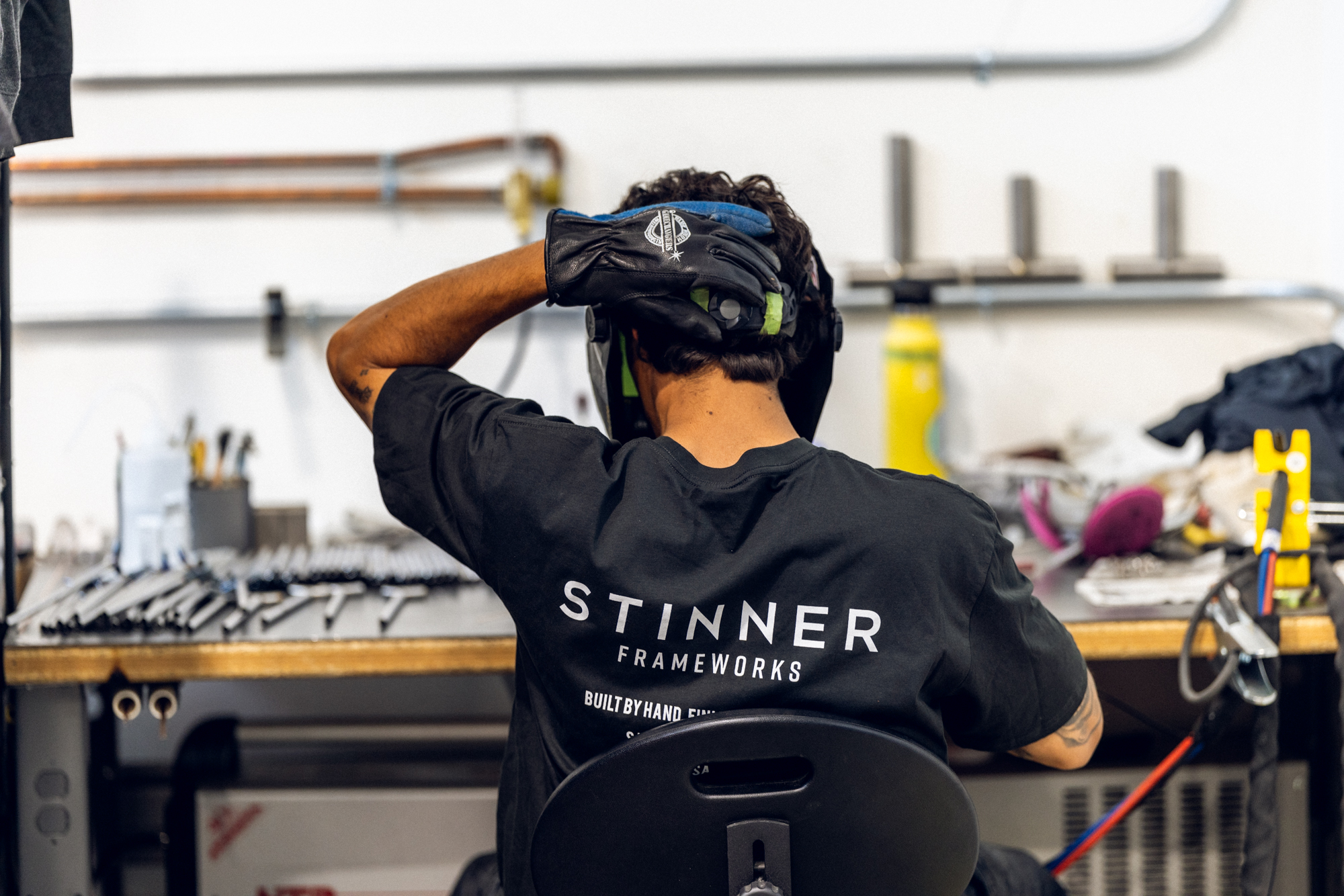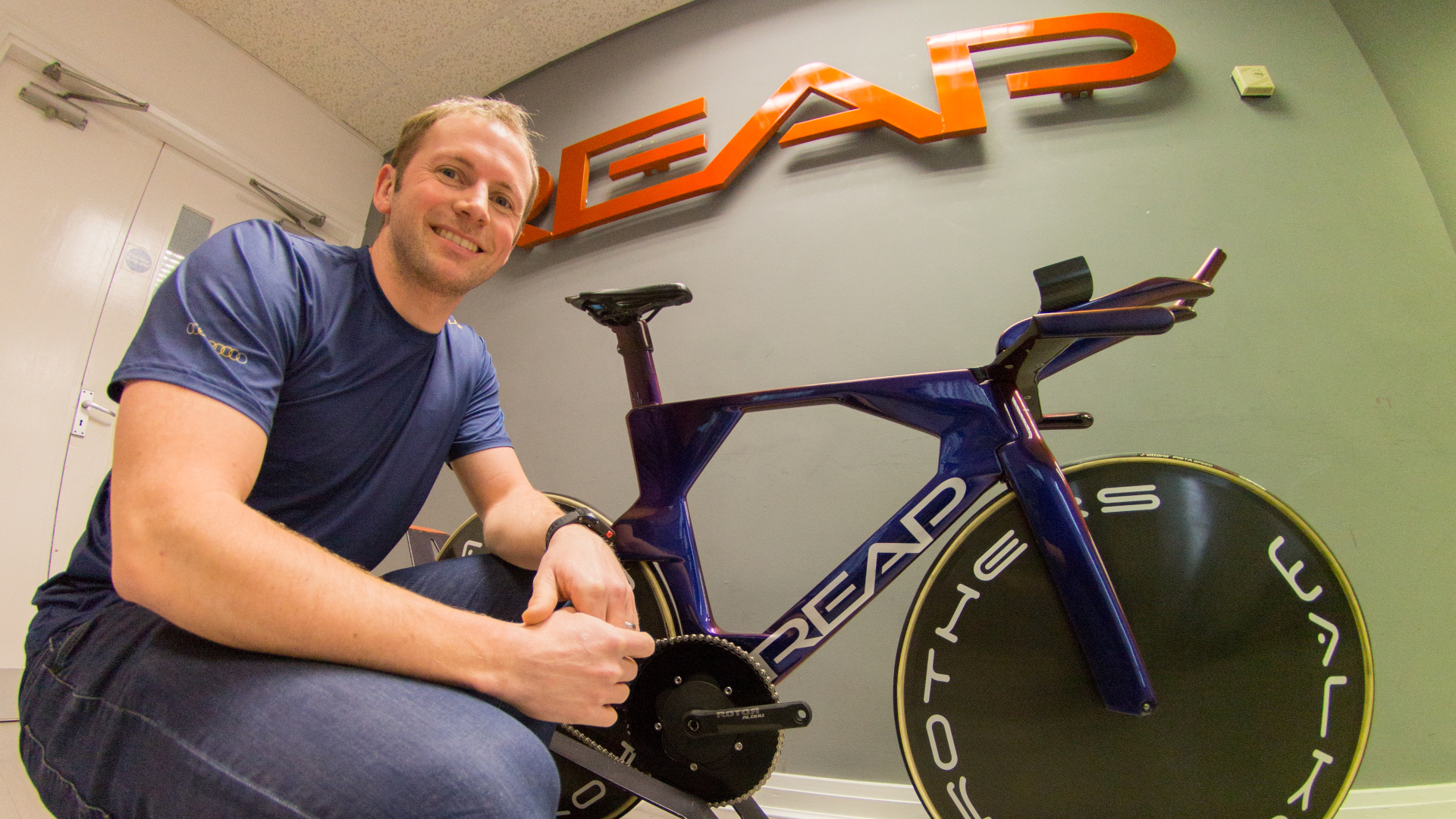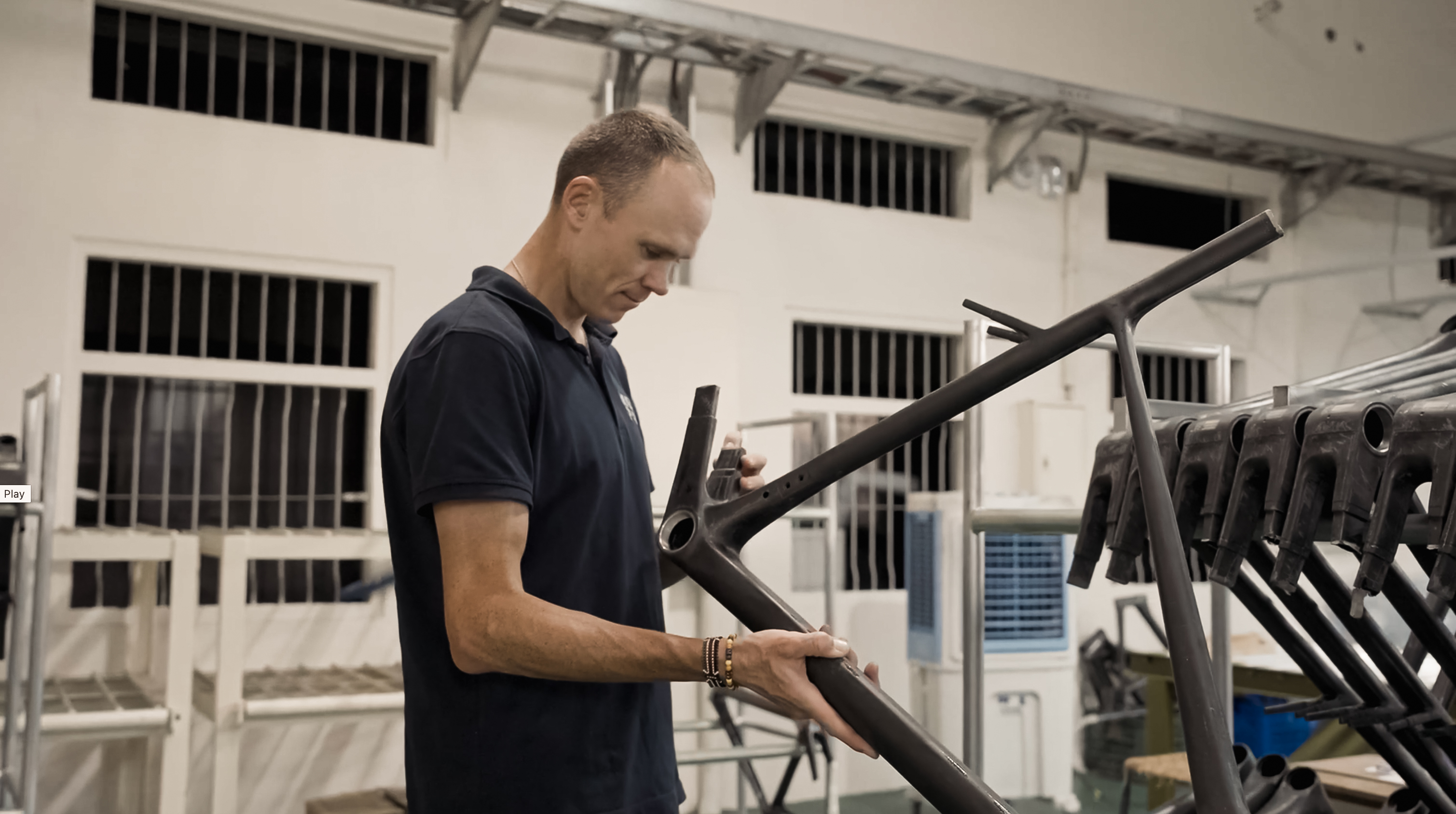It is no secret that the world’s bicycle industry runs on skills and products developed in the factories of China and Taiwan, two countries faced with heavy new US trade tariffs as of 5 April.
All countries faced a 10% baseline tariff, an import tax payable on all goods shipped into the U.S., but China and Taiwan – already subject to heavy tariffs set by Trump’s administration during his first term – are set to pay 34% and 32% respectively in additional import taxes. That brings the total tariff for goods imported to the U.S. from China to 54%. China has already clapped back, with heavy new tariffs of their own, and the fluid situation is changing daily.
What is clear is that the repercussions are potentially seismic, with many brands reliant on exports from multiple countries now facing enormous fees. But what does that mean for the bike industry, and its customers?
(Image credit: Getty Images)
Giant and Merida, for example, occupy opposite ends of Taiwan, with a plethora of facilities in between; elements of production also take place in Vietnam and elsewhere – a country also facing tariffs and not so heavily discussed in the media. Whilst mainstream brands – those names you see on the downtubes of the vast majority of bikes ridden across the world – are heavily invested in the design process and creation of frame moulds, hardly any own their own factories. Their frames come from the facilities of Giant, Merida, and other lesser known manufacturers.
There are many brands who have their headquarters in the U.S., Specialized and Trek – two of the ‘big three’, alongside Giant in Taiwan – are key examples. However, it’s not just those who call the United States home who will be affected, as the tariffs will be imposed on any brand shipping into the country; UK brands with customers across the pond, will also face new tariffs.
Marketing brands will ‘evaporate’
According to the owner of Time Bicycles, Tony Karklin, the tariffs may see some Chinese firms acquiring more European and US brands, to establish their own distribution entities or assembly operations inside the U.S. border. As well as Time, Karklin owns and runs Cardinal, which operates a substantial operation producing bicycles and components in Portugal and other parts of Europe, including Lithuania.
As Chinese and Taiwanese owned companies seek to keep their large operations busy – with the news from almost all corners that bike brands are pausing their Asian frame orders – Karklin thinks we’re going to see a seismic shift in the structure and ownership of bicycle manufacturing, with more large Asian companies expanding their own brands.
The latest race content, interviews, features, reviews and expert buying guides, direct to your inbox!
Reflecting on the current state of affairs, he said: “[It is already very] hard to sell in this market; no one is really selling anything at full price yet; retailers are more cautious than ever and we have all these recession fears.”
Karklin refers throughout the conversation to ‘sports marketing’ brands, saying many of them “will just evaporate”.
“Now we have all these tariffs, brands will stop ordering at the OEM [Original Equipment Manufacturer] level. We’ll then have big factories with excess capacity, they’re going to be looking to buy brands, or launch their own brands, to use that capacity,” he said.

XDS has invested in big brand team sponsorship, with Astana XDS X-Lab
(Image credit: Future/Andy Jones)
Partly thanks to slowing demand and over-inventory at the big manufacturers – following the well-documented effects of the Covid fueled oversupply – we’re already starting to see the emergence of well-backed, well-funded Asian operations breaking into the U.S and European markets with their own brands. X-Lab by XDS, and their backing of UCI WorldTour team Astana XDS X-Lab, is one such example.
Is a move back to US manufacturing possible?
Trump’s goal, in introducing these tariffs, is to increase manufacturing in the United States. And Karklin believes that’s possible – stating that some U.S. brands still have capacity to produce at home.
Alec White of White Industries, a U.S. brand famous for its high end machined hubs and components, makes all of his product on U.S. soil, but he still needs imports. They use high-quality bearings from Enduro who are a U.S. based company, but manufacture in Singapore, Taiwan and China.
“I am for U.S. jobs and homegrown manufacturing, but, some things make no sense to make here. The labour cost is just higher. My prices will likely have to go up, we’re going to try and mitigate that as much as possible.”
White is also concerned that whilst in his region he has dozens of machine shops that can produce almost anything to a high level, it’s the complexity in some of the humble parts that the U.S. isn’t and can’t be well set up to produce for years.
“A thirty or forty dollar rear hub and free hub for example. That’s a complex part, which when mass produced, has a low unit price, essential to building thousands of reasonably priced bikes. The expertise, process and technology they have in Asia to produce those parts at volume, can’t be replicated here in even a decade, and who’s going to do that? You’d replace 10 jobs there, with 1 job here and a big machine, and have spent years designing the automation, just to catch up to where they are now.”
Tariffs don’t just affect bike sales or pricing of course, and economists agree that the tariffs will mean high inflation in the short to mid-term. That means the things people buy will be going up – across the board – and that’s going to further squeeze household budgets, hitting spending on luxury products such as sports goods hard.
“My worry is that at the entry-level end, no one in the U.S. can hit [the prices made possible with Asian manufacturing], regardless of tariffs. If a kid never gets a bike because the price goes up, and the money is going towards groceries, that kid doesn’t get into cycling, and that worries me for the future of the cycling industry.”

(Image credit: Stinner Cycles)
A few smaller, US brands, are looking to capitalise on the situation. Stinner Cycles’ Aaron Stinner is launching an OEM service, Stinner Manufacturing, for brands who want to manufacture in the U.S., he’s already offering capacity for up to 3,000 frames per year and is optimistically cautious: “The current tariffs have implications for anyone running a business, not to mention its impact on consumers, jobs and the economy. For Stinner, the effect is lighter than a brand producing overseas, but we are still feeling it.”
“We are seeing a rush as customers purchase our stock bikes now before a potential cost increase to offset rises in the cost of materials,” he said, adding “chaos and reactionary business decisions put the bike industry in a pickle during COVID-19. The fear is that the same mistakes will be made now.”
The impact on UK bike brands
Tariffs for the UK, charged in the U.S. when customers receive goods exported from the UK, are sat at 10%. At the moment, that means the UK is – in the context of these developments – potentially in a good place to be making frames or assembling bicycles for export, but there will be some kickers; if the frame came from say, Vietnam, U.S. customs considers that subject to the Vietnamese tariff, of 46%.
We reached out to Ben Meir of REAP Bikes, who manufacture carbon bicycles in the UK. “There was no cause for panic”, he said, but added, “can we foresee a situation where a product we make – that’s equivalent to a U.S brand bike shipped out of Taiwan – but subject to considerably less tariff than the U.S brand bike? Yes, but it’s too early to tell if that will stick.”

Jason Kenny photographed at REAP’s UK headquarters, with their wholly UK designed and manufactured carbon TT frame.
(Image credit: REAP bikes)
Alternatively, brands may look to Europe, where operations do not match the scale of the Asian countries, but are up and running, with lower tariffs reducing the cost of imports. Parlee has recently begun production in Portugal, where Time Bicycles also produces parts for some of its bikes, for example.
Holding stock on the water
News of brands keeping stock floating on the water between Asia and the U.S. – or racing to get it stateside before tariffs apply – has become a regular topic of conversation amongst industry insiders.
Tern Bicycles, for example, is staring down the barrel of a $1million import duty on product already on its way to the U.S. – if it doesn’t land before the taxes kick in.
North America Manager at Tern, Steve Boyd, had a clear message for consumers (and policy makers): “If you’re in a position to buy a bike, this would be a good time to buy. This is our peak season. I’ve got a few months of stock on hand, and a few months on the way. If this takes 60 days to figure out, we’re going to miss this spot. It’s not going to be a run on inventory like we saw in the pandemic, but we will see a product shortage.”
Looking ahead to the longterm, he felt decisions were being made with a lack of understanding for what’s possible. “Even if we make our bikes here, we still have to source parts elsewhere. The supply chain is global. Replacing that isn’t possible in the short term. People in industry get that, people in Washington don’t.”
He also thinks the unseen impacts will make it harder than ever to complete bikes. “If the guy you buy saddles from doesn’t make it through this, who’s going to replace that stock? You can’t just magic up 5000 saddles, and then you’ve got a ton of incomplete stock you can’t sell. The same issue applies to chains, and hundreds of parts.”

Chris Froome, a shareholder in Factor Bikes, manufacturing bikes in Taiwan
(Image credit: Factor)
So will brands who sell into the U.S. be forced to move their manufacturing there? Most are saying it’s too early to say, and are “waiting to see how this all shakes out” in the words of Mike Stimola, Enve Composites CEO.
Perhaps then, to sum up, Factor’s Rob Gitelis’s words are much more impactful than mine: “Our products are made in Taiwan, they’ve always been made in Taiwan, we will continue to produce in Taiwan, I live in Taiwan. All we know is that bikes are going to get more expensive.”

